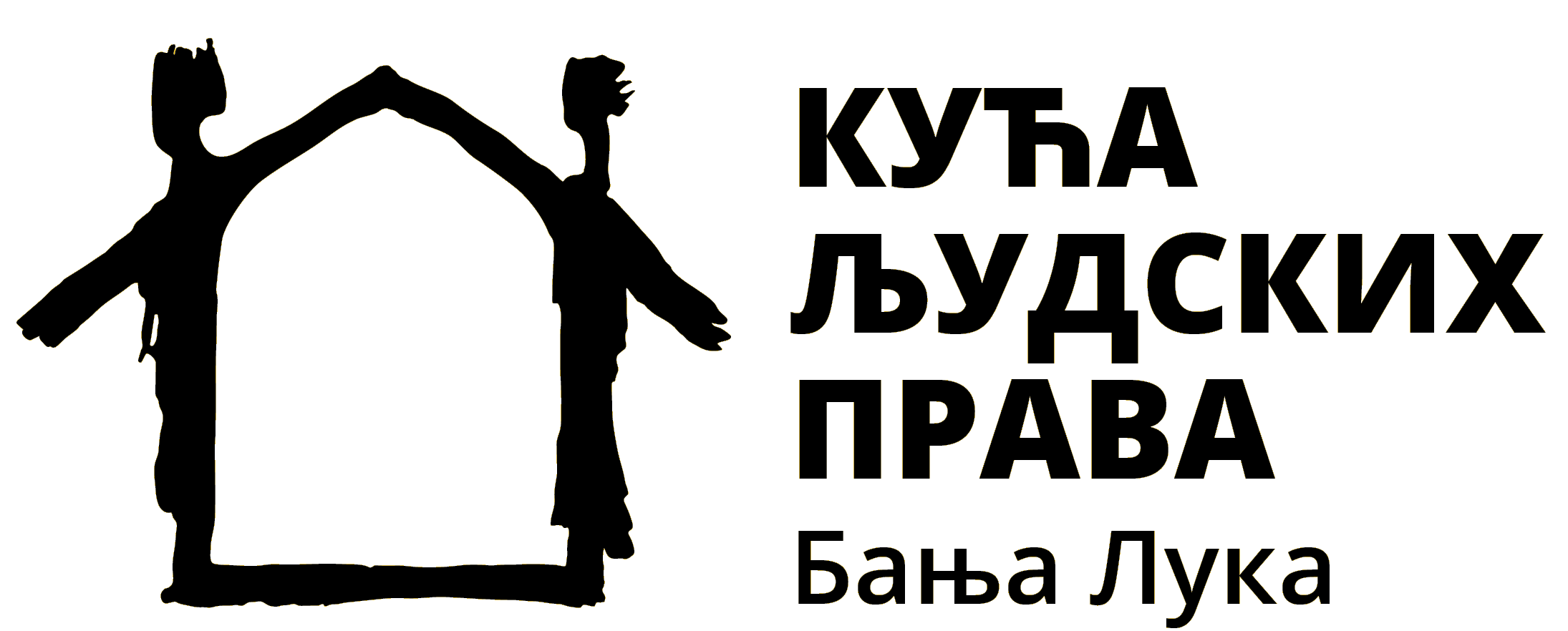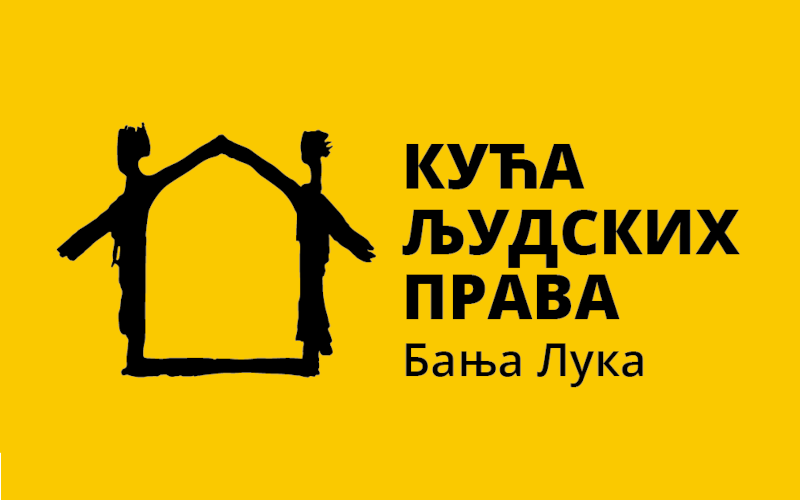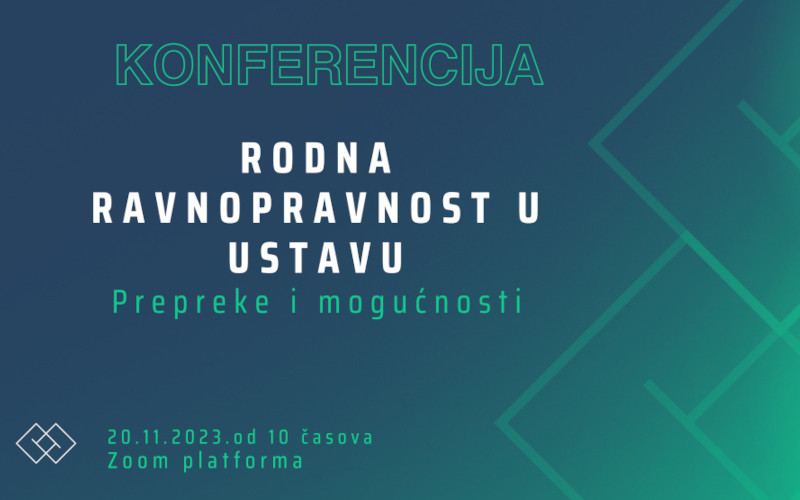On September 28, the National Assembly of the Republic of Srpska adopted the Draft Law on the Special Register and Publicity of the Work of Non-Profit Organizations. This Draft is referred to in the public as “Law on Foreign Agents”, “NGO Law”, “Law on Agents of Foreign Influence”, “Law on Foreign Mercenaries” and similar.
So what exactly does this Draft Law bring?
Register of non-profit organizations
The draft law stipulates that a special Register of Non-Profit Organizations launched in the Republic of Srpska that are helped financially or otherwise by foreign entities as agents of foreign influence is established.
Such a prescription would practically create another, completely unnecessary, register of organizations. Namely, the single register of associations and foundations is already maintained by the Ministry of Administration and Local Self-Government of the Republic of Srpska, and this ministry also maintains a single register of foreign and international non-governmental organizations that have registered their representative offices on the territory of the Republic of Srpska. In addition, the association or foundation is registered in the register of associations or the register of foundations maintained by the basic court in the seat of the district court where the association or foundation has its seat.
By non-profit organizations that will be registered in the new Register are meant associations and foundations, as well as foreign and international non-government organizations launched and registered in the Republic of Srpska in accordance with the Law on Associations and Foundations of the Republic of Srpska, which are fully or partially financed by other countries, their bodies or their authorized representatives, international and foreign organizations, foreign residents or registered non-government organizations financed from abroad.
So, for now, according to the Draft Law, those organizations that were launched in accordance with other laws in BiH will not fall under this regime. However, it is enough that this provision undergoes a change in the future, and that, for example, stipulates that the law applies to organizations that implement activities in the Republic of Srpska and that it also covers other associations and foundations that were not launched in accordance with the Law on Associations and Foundations of the Republic of Srpska. Everything is possible, including this development of the situation.
The Register itself would be managed by the Ministry of Justice, and data such as: name, surname and address, i.e. the name and seat of the founder of the non-profit organization, the founding act and the registration decision issued by the competent authority, the statute and the bodies of the non-profit organization would be entered in it.
Political action and political activity
There is a very controversial article in the Draft Law which stipulates that non-profit organizations will not be allowed to engage in political action or political activities.
According to the Draft Law, the political action of non-profit organizations includes participation in the pre-election campaign of political parties and candidates, fundraising for political parties and candidates, financing of candidates, i.e. political parties and implementation of political activities to form public opinion in order to achieve political goals.
The political action defined in this way is partly on the track of provision from the Law on Associations and Foundations, which stipulates that the goals and activities of associations and foundations cannot include: involvement in the pre-election campaign of political parties and candidates, fundraising for political parties and candidates and financing of candidates, i.e. political parties.
However, the part in the Draft Law that prohibits non-profit organizations from implementing political activities for the purpose of forming public opinion in order to achieve political goals is completely unclear.
Political activity from the Draft thus means any activity towards bodies, institutions or elected representatives of the Republic of Srpska or representatives of the Republic of Srpska in the institutions of Bosnia and Herzegovina in the sense of formulating, adopting or changing the regulations and policies of the Republic of Srpska or in terms of political and public interest.
Almost every activity of non-profit organizations that falls under the watchful eye of those who follow them can be framed in such definition of political activities. These activities can range from initiatives to change laws, through criticism of political decisions to research into political processes. Potentially this could include, as the Venice Commission and ODIHR/OSCE have said, any form of advocacy through activities such as participation in peaceful assemblies, giving statements to the media, participation in radio or television programs, publications, etc.
However, it should be noted that the Draft Law stipulates that political action is not considered action in the fields of science, culture, social and health care, sports, consumer protection, protection of the rights of national minorities and persons with disabilities, environmental protection, fight against corruption, philanthropy, volunteerism and informing.
It is interesting that these exceptions do not include human rights or the rule of law, which are dealt with by a significant number of active civil society organizations in Srpska. The Venice Commission and the OSCE stated in their Joint Opinion on the Draft Law from June 2023 that this could lead to the point where all statements or activities related to the promotion and protection of human rights, the rule of law, criminal justice or judicial reform, together with public consultations in the processes of adopting policies or laws fall under political activities.
Therefore, the Draft Law directly affects freedom of expression and association, as well as democratic forms of improving regulations and practices in the Republic of Srpska. Unfortunately, the Draft Law is designed in such a way that a lot of it is not completely clear, it contains rubber standards that can be stretched as anyone can think of, and only with its application we would be able to see how things would be interpreted, which is, of course, inadmissible.
Bureaucratization and reports
According to the Draft Law, a non-profit organization would be obliged to submit to the Ministry of Justice a half-yearly and annual financial report indicating the payer, the amount of funds transferred, the type and amount of compensation and income expressed in money or other value, as well as a report on the expenditure of funds.
The Ministry would submit a financial report to the Tax Administration of Republika Srpska in order to control financial operations.
Such statements in the Draft Law lead to the conclusion that is intended for the work to be more difficult with additional obligations for organizations. Namely, according to the current legal regulations, associations are already obliged to submit various reports to the institutions of the Republic of Srpska, and each association, as a legal entity, has e.g. the obligation to submit the final financial report to the Agency for Intermediary, IT and Financial Services (known as APIF), to submit the basis for the inflow of funds to the bank during the inflow of funds so that they can use them, and is subject to the controls of the Tax Administration in the Republic of Srpska. Numerous civil society organizations have already pointed out the existing regulation and the needlessness of additional obligations.
New reporting and delivery of various documents to multiple parties is just an unnecessary bureaucratization of procedures, imposition of new obligations for which there is no basis in the standards related to the practice of freedom of association, as well as in practice, and unnecessary burden on the work of associations and foundations.
Punishment
The Draft Law stipulates that the supervision of the legality of the work of a non-profit organization is carried out by the competent inspection authority. However, it is not defined at all which specific authority it is.
Also, regular inspection supervision over the legality of work is determined to be carried out once a year, and extraordinary inspection supervision will be able to be carried out based on petitions from citizens, legal entities, publicly available information, authorities of the Republic of Srpska or at the request of the competent committee of the National Assembly.
The Minister of Justice gets the opportunity to be the “executioner” of non-profit organizations. Thus, he/she will be able to submit a request to the competent court for a ban on the performance of work, in the case that the non-profit organization acts contrary to the provisions of the Draft Law.
In addition, in the case that a non-profit organization acts contrary to the Constitution and regulations of the Republic of Srpska in its activities, i.e. when it acts as an agent of foreign influence to the detriment of individual and other rights of citizens or encourages violence, uses hate speech or encourages religious or other intolerance with the aim of achieving political goals or if the Tax Administration of the Republic of Srpska determines irregularities in financial operations, the Ministry of Justice will initiate proceedings before the competent court for the prohibition of work, as well as proceedings against the responsible persons in accordance with the Criminal Code of the Republic of Srpska.
The existing Law on Associations and Foundations already stipulates that the statute and activities of associations and foundations cannot be contrary to the constitutional order or aimed at violently undermining it, encouraging national, racial and religious hatred and intolerance or discrimination prohibited by the Constitution and the law. In addition, the Criminal Code stipulates, for example, the criminal offense of public incitement and encouragement of violence and hatred, which prescribes punishment for those who publicly call, incite or encourage or make available to the public leaflets, pictures or other materials that call for violence or hatred directed towards a specific person or groups because of their characteristics. Also, irregularities related to the Tax Administration and punishments related to it are already prescribed by the laws according to which the Tax Administration acts.
Therefore, the Draft Law creates an unnecessary accumulation of the same or similar provisions, but with one very important difference. In the case of the Draft, we are talking about the direct initiation of the procedure for prohibiting the work of the organization for which the Tax Administration has determined irregularities, and not about punishing it for misdemeanors!
Appeals against decisions are not discussed in the Draft Law.
The laws already exist!
The authorities are trying to present to the public that there is no regulation in the field of association work, that associations do not work transparently and that they are not accountable to anyone.
However, the activities of associations and foundations in the Republic of Srpska are already regulated by the Law on Associations and Foundations, which regulates the establishment, registration, internal organization, termination of the work of associations and foundations, as well as other related issues. Also, there are other laws that indirectly relate to the work of the association, such as, among others, the Law on General Administrative Procedure, the Law on Administrative Disputes, the Civil Procedure Law and others.
In this regard, it is clearly prescribed that the current registers (maintained by the Basic Court and the Ministry of Administration and Local Self-Government) are open to the public during working hours. Any person can request a copy of any entry in the register or any document from the case file of a registered organization in person or by mail.
Also, associations and foundations are obliged to submit an annual work report and a financial report in accordance with the law, other regulations and the statute.
In addition, it is very problematic that the provisions of the Draft Law are unclear, unspecified and insufficiently explained, and also contradict the existing laws, the Constitution of the Republic of Srpska, international instruments for the protection of human rights, as well as the practice of international bodies, such as the European Court of Human Rights. The provisions of the Draft Law are contrary even to the Rules of Procedure of the National Assembly, the authority that should pass this law (sic!). So, for example, the Rules of Procedure stipulate that the initiative for the adoption of laws or other acts within the jurisdiction of the National Assembly can also be given by associations. However, as we have seen, in the Draft Law this kind of initiative is viewed as a political activity that is prohibited.
As various organizations have already warned, it is clearly visible in the Draft Law itself that additional obligations are imposed on organizations that are fully or partially financed from abroad, and it narrows the possibility of action, and at the same time attempts are made to prevent them from participating in certain processes.
Perhaps the crucial thing from the Draft Law is that the targeted organizations are labeled as “agents of foreign influence”, which stigmatizes certain associations, will directly affect their performance, and could discredit the activities they implement in the eyes of others.
At the same time, the stigma of “agent of foreign influence” can lead to physical attacks on members of stigmatized associations and their offices, because an atmosphere of fear has already been created and is still growing in Republic of Srpska. Thus, citizens are already being incited against the civil sector with accusations that it undermines the state, the authorities and the ruling parties in the Republic of Srpska, by calling activists “traitors”, “enemies of the Serbian people” and “foreign mercenaries”. The provisions contained in the Draft Law would only reinforce this.
Passing such a law is not only unnecessary, but also malicious and clearly directed towards the targeted organizations. The reasons for passing the law, i.e. the explanation in the Draft Law, is very terse and poorly written and does not contain an explanation of the necessity of passing the law at all, as there is already a legal regulation of the issues it deals with, which I already explained earlier.
What next?
The National Assembly of Republic of Srpska decided to submit the Draft Law to public discussion, because the aforementioned Draft Law regulates issues that are of particular importance to citizens and on which it is necessary to consult authorities, organizations, scientific and professional institutions and interested citizens. This public discussion will be conducted within 30 days.
After the public discussion, drafting of the draft law will begin, and then a new decision-making in the National Assembly. So far, the impression is that public discussions have not been very effective, which we could see very well in the example of the changes to the Criminal Code, and that they actually represent a facade of democracy that is maintained only pro forma.
If the law is then adopted and passed by the House of Peoples, the President promulgates it, and the Official Gazette publishes it, which is certain to happen, by the end of this year or the beginning of next year we can have a new legal regime regarding the work of non-profit organizations.
In addition to the fact that the Draft Law is poorly written, discriminatory, unnecessary and contrary to freedom of association, there are many other open questions related to it.
One of them is why the proposed Draft labels and discriminates against non-profit organizations from Republic of Srpska which activities and projects are financed by foreign governments and organizations, while the Draft Law excludes associations and foundations that are financed from public budgets, and precisely those mechanisms for the allocation of financial resources are insufficiently transparent and a source of various abuses.
Also, there is no logic in excluding political organizations (political parties), business associations, other legal entities, as well as government bodies and institutions in the Republic of Srpska from the label “agent of foreign influence”. Namely, as the institutions themselves are financed through international projects, including those from the European Union and the United States of America, the question arises as to why they are not declared agents of foreign influence when they receive funds from abroad, which are, moreover, much larger than those that non-profit organizations receive…
***
In practice, the adoption of such a law will mean that associations that fall under this legal regime will be discriminated against and will bear the stigma of agents of foreign influence; their work will be further complicated and bureaucratized; and in case of violation of the provisions of the Draft Law, they would be fined, but also prohibited from working.
At the end, I must conclude that the purpose of the Draft Law is to send a message to citizens that the targeted associations are enemies of the state. As written, the Draft represents another step in a series of illegitimate restrictions on basic human rights and freedoms, such as freedom of expression, assembly and association. I have no doubt that restrictions on rights will continue in the future.
To sum it up: foreign mercenaries, domestic traitors, agents, enemies, destroyers of the state and the people… currently there are dangerous words, constructions and markings, but in a few months they will be initialed, made official and strengthened and proscriptions will be proclaimed “by law”!
For more on this topic, see:
Draft Law on the Special Register and Publicity of the Work of Non-Profit Organizations
An Attack on the Work of the Associations
Universal Declaration of Human Rights, [A/RES/217, 1948]
International Covenant on Civil and Political Rights, [United Nations General Assembly, 2200A (XXI), 1966, Treaty Series, vol. 999]
Convention for the Protection of Human Rights and Fundamental Freedoms, [Council of Europe, European Treaty Series Nos. 005, 009, 044, 045, 046, 055, 114, 117, 118, 140, 146, 155, 177, 187, 194, 204, 213 and 214]
Declaration on the Right and Responsibility of Individuals, Groups and Organs of Society to Promote and Protect Universally Recognized Human Rights and Fundamental Freedoms, [United Nations General Assembly, Resolution 53/144]
Constitution of Bosnia and Herzegovina – Annex IV of the General Framework Agreement for Peace in Bosnia and Herzegovina – Constitution of Bosnia and Herzegovina, [negotiations started in Dayton on November 21, 1995, and the agreement was signed in Paris on December 14, 1995]
Constitution of the Republic of Srpska, [Official Gazette of the Republic of Srpska, numbers 21/1992, 28/1994, 8/1996, 13/1996, 15/1996, 16/1996, 21/1996, 21/2002, 31/2002, 31/2003, 98/2003 and 115/2005]
Law on Associations and Foundations of the Republic of Srpska, [Official Gazette of the Republic of Srpska, numbers 52/2001 and 42/2005]
Civil Procedure Law, [Official Gazette of the Republic of Srpska, numbers 58/2003, 85/2003, 74/2005, 63/2007, 105/2008, 45/2009, 49/2009 and 61/2013]
Law on Administrative Disputes, [Official Gazette of the Republic of Srpska, numbers 109/2005 and 63/2011]
Law on General Administrative Procedure, [Official Gazette of the Republic of Srpska, numbers 13/2002, 87/2007, 50/2010 and 66/2018]
Law on Inspections, [Official Gazette of the Republic of Srpska, number18/2020]
Law on Prohibition of Discrimination of Bosnia and Herzegovina, [Official Gazette of Bosnia and Herzegovina, numbers 59/09 and 66/16]
Criminal Code of the Republic of Srpska, [Official Gazette of the Republic of Srpska, numbers 64/2017, 104/2018, 15/2021, 89/2021 and 73/2023]
Rules of Procedure of the National Assembly of the Republic of Srpska, [Official Gazette of the Republic of Srpska, number 66/2020]
Ecodefence and Others v. Russia, [Applications nos. 9988/13 and 60 others, 14 June 2022]
Cover photo: Barbed Wire, [Author: Gerd Altmann, photo downloaded from: Pixabay]
The text was downloaded from the website of Dejan Lučka on the following address: https://dejanlucka.com/sta-tacno-pise-u-tzv-zakonu-o-stranim-agentima/



